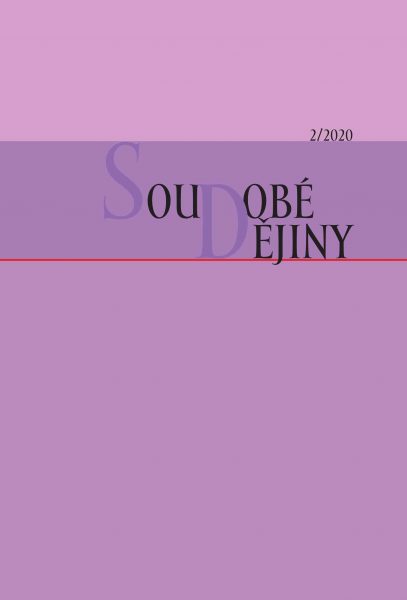Husák, Jirous a síla historických mýtů
Husák, Jirous, and the power of historical myths
Author(s): Vítězslav SommerSubject(s): History, Cultural history, Music, Political history, Recent History (1900 till today), Post-War period (1950 - 1989), History of Communism, Book-Review
Published by: AV ČR - Akademie věd České republiky - Ústav pro soudobé dějiny
Keywords: Czechoslovakia;Gustáv Husák;Ivan Jirous;Communism;Communist Party of Czechoslovakia;underground;Czechoslovak normalization;Czech historiography
Summary/Abstract: The review compares two extensive historical biographies the protagonists of which are asdifferent as they can be – the Slovak Communist politician Gustáv Husák (1913–1991), who, having experienced many ups and downs in his life, finally became the Secretary General of the Communist Party of Czechoslovakia in 1969 and the President of the Czechoslovak Socialist Republic six years later, and the art historian and musician Ivan Martin Jirous (1944–2011), who became the most prominent representative of musical underground during “Husák’s rule”. Both were political prisoners for several years; Husákin the 1950s and Jirous in the 1970s and 1980s. The author summarizes reactions to both books – "Gustáv Husák" by Michal Macháček (Prague: Torst, 2017) and "Magor and his time: The life of Ivan M. Jirous" by Marek Švehla (Prague: Vyšehrad, 2017) – and finds remarkable similarities, although the approaches of their authors are hardly compatible. Husák’s biographer Michal Macháček is an empirically oriented historian, who has collected an impressive amount of material and meticulously studies historical sources which he honestly mentions in extensive footnotes; on the other hand, Jirous’s biographer Marek Švehla is a journalist who is, first and foremost, after a story that would attract readers, which means that he treats historical sources rather arbitrarily, uncritically takes over narrations of contemporary witnesses, and presents every juicy story with gusto. However, both authors wrote books which fail to present Husák and Jirous in a broader period context and ultimately just repeat or strengthen existing myths associated with the two historical personalities dealt with in the books. As to Jirous, it is “Magor’s myth” of an indomitable rebel and intransigent opponent of the Communist regime, in the case of Husák a myth of “the smartest Slovak” who could turn every defeat into a subsequent victory and ultimately grasped and retained power thanks to his ability to outsmart his rivals.
Journal: Soudobé Dějiny
- Issue Year: XXVII/2020
- Issue No: 2
- Page Range: 337-348
- Page Count: 12
- Language: Czech

